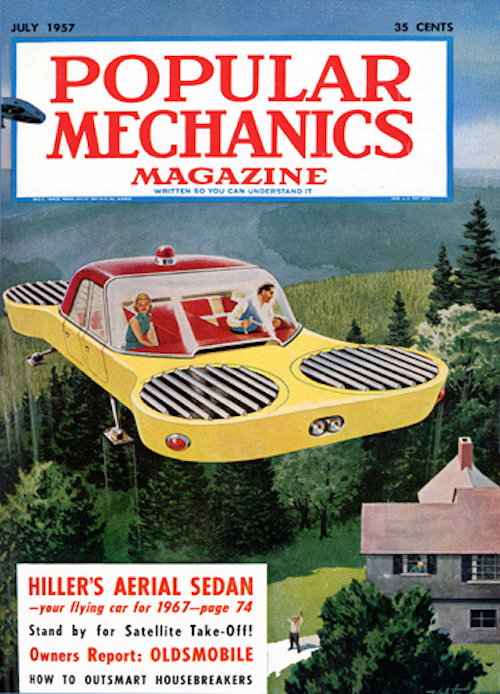n. Nostalgia for an unrealized future that was predicted in the past.
2014
But in addition to our retreat into wishfulness, something else was brewing: a sense that the past was not only better than the present, but that the past’s predictions for the future were also better than what had actually become the present. No longer content to live in (or through) our memories of the past, we also yearned to live in the past’s vision of the future. We were nostalgic for yesterday’s prognostications: You could say that we succumbed to prognostalgia.
2011
@ArtVolumeOne Thanks for BBC documentary link, induced deep prognostalgia, if that's the word for a sense of loss about futures of the past
2009
@leylandrichard Seriously — what about some prognostalgia for the future of work being 15 hours a week?
2009 (earliest)
Although many (most?) books, movies, TV shows and other media that take place in the future have a distinctly dystopian angle on what's in store (think: Blade Runner), a few have, well if not exactly a utopian vision, then at least a more optimistic outlook. This latter view (and this might just be the hindsight talking) seemed to more prevalent in the past, particularly the 1950s and 60s, when every illustration of future landscapes showed flying cars, people with jetpacks, and sleek trains riding inside giant pneumatic tubes. None of these predicted futures came to pass, alas, and it's that melancholy for what once could have been that fuels prognostalgia.
 A prognostalgia-inducing flying car, from the July 1957 issue of Popular Mechanics.
A prognostalgia-inducing flying car, from the July 1957 issue of Popular Mechanics.
 A prognostalgia-inducing flying car, from the July 1957 issue of Popular Mechanics.
A prognostalgia-inducing flying car, from the July 1957 issue of Popular Mechanics.